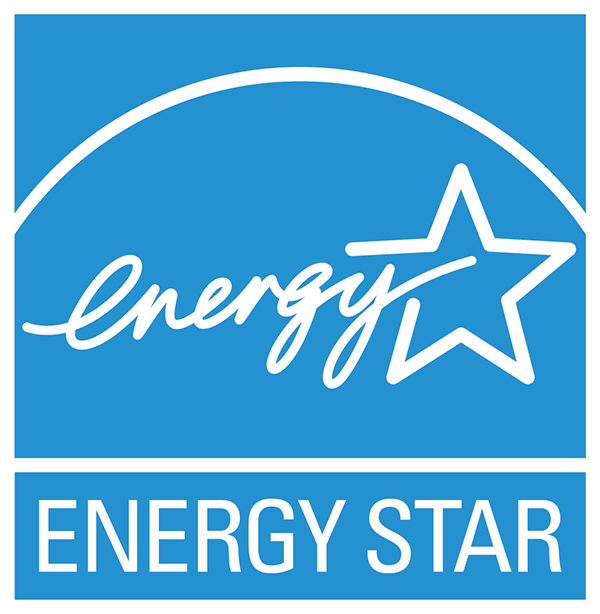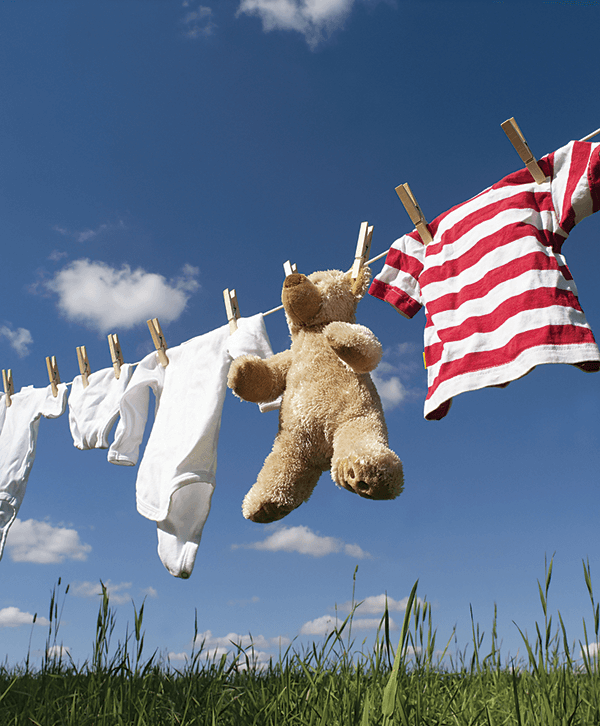What is the cheapest energy? The energy that is not used!
Large high efficiency appliances
 The fridge, stove, dishwasher, washing machine and dryer consume 13% of your home’s energy consumption. To significantly reduce your environmental impact and your utility bills, be careful when choosing energy-consuming appliances!
The fridge, stove, dishwasher, washing machine and dryer consume 13% of your home’s energy consumption. To significantly reduce your environmental impact and your utility bills, be careful when choosing energy-consuming appliances!
When you purchase, take into account the overall cost, both the initial cost and the cost linked to daily consumption. To do so, consult the EnerGuide rating sheet for the product to find out the yearly KWh consumption of the appliance
CLOTHES DRYER
 The dryer is generally considered the most energy-intensive household appliance. As an alternative, clothing can be hung up and dried either inside by drying flat on a standard clothes horse, hung in a drying cabinet or hung outside on a clothesline. These low-cost options are 100% energy saving!
The dryer is generally considered the most energy-intensive household appliance. As an alternative, clothing can be hung up and dried either inside by drying flat on a standard clothes horse, hung in a drying cabinet or hung outside on a clothesline. These low-cost options are 100% energy saving!
- Maximum acceptable consumption: 945 kWh
REFRIGERATOr
With the freezer, the fridge is the only appliance to operate continuously. Therefore, twice as much attention needs to be paid to its consumption. The choice to make: a single fridge with a built-in freezer, an ENERGY STAR® model. The two-door models that distribute water or ice cubes are to be avoided: they consume more.
- The ideal temperature of the fridge: between 0 and 4 °C (32 and 39 °F)
- Acceptable maximum consumption: 460 kWh
Little known alternatives to the fridge are worthy of mention: Natural conservation, i.e., keeping perishables fresh in a naturally cold room without using electricity and the autonomous refrigerator
FREEZER
It is to be avoided: It works 24 hours a day non-stop, throughout the year, and consumes a lot of energy. Settle for a freezer built into the refrigerator or choose canned foods instead! If you cannot go without a freezer, opt for a horizontal freezer rather than a vertical one, and one of small capacity.
- The ideal temperature of the freezer: -18 °C (-0.4 °F)
- Acceptable maximum consumption: 350 kWh
STOVe
The most environmentally-friendly choice is the electric stove. As far as energy consumption is concerned, all models are more or less the same. Having said that, the coil-top models consume the most energy and the ceramic stove top and/or convection stoves represent the best choice.
- Acceptable maximum consumption: 545 kWh
RANGE HOOD
The exhaust fan removes moisture, contaminants and odours. Opt for a silent range hood, for example, one that operates at 2 sones maximum. You will use it more often.
ENERGY STAR® WASHING MACHINE
It allows for 50% of energy savings per year. Choose washing in cold water, which is more energy efficient but equally effective. Maximize your washing machine’s usage - wash a large load rather than several small ones.
- Acceptable maximum consumption: 175 kWh
ECO-EFFICIENT DISHWASHER
Choose an Energy Star® model: on an annual basis, energy and water consumption are reduced by approximately 50%. To use the dishwasher more efficiently, load it completely before running it, avoid the pre-wash option and opt for the "no-heat drying cycle” also called "air drying” and the short cycle.
- Acceptable maximum consumption: 275 kWh
See the list of models and products available in Canada, with their ENERGUIDE rating.

